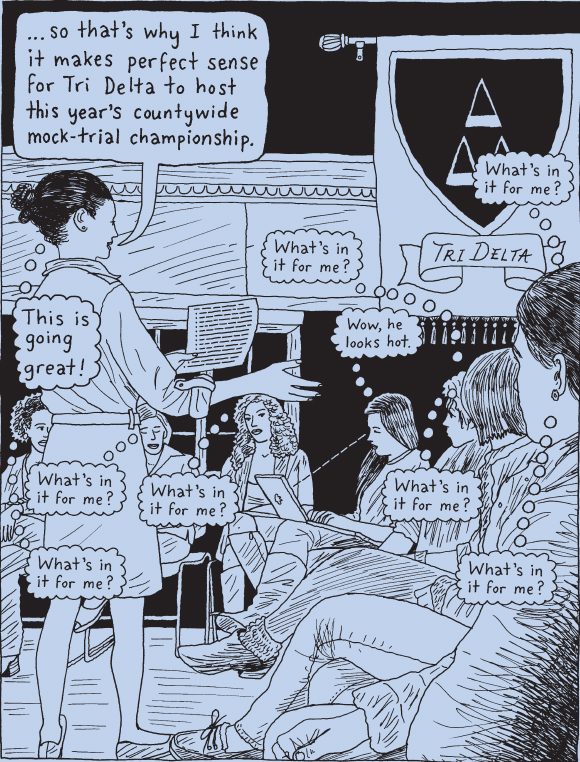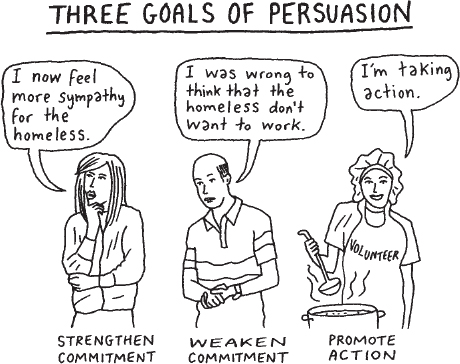PERSUASIVE SPEAKING
Printed Page 511
17
PERSUASIVE SPEAKING

Look for the  throughout the chapter for online video activities at bedfordstmartins.com/speakup.
throughout the chapter for online video activities at bedfordstmartins.com/speakup.
 Good persuaders make strategic choices in an ethical manner.
Good persuaders make strategic choices in an ethical manner.
Leticia was excited about a great service opportunity for her sorority, and she waited eagerly to share her plan with the leadership council. Her idea? For the sorority to host the countywide high school mock-trial championship on campus. Leticia was on the college mock-trial team, and she also served as a volunteer coach for a local high school team. She knew that the county courthouse, where the high school championship was usually held, would not be available this year. Because several sorority members were prelaw majors, she was confident that her sisters would be enthused about this idea.
During the next council meeting, Leticia presented her plan. She had carefully considered all the details about the event—how many rooms would need to be reserved, how many judges and volunteers would need to be recruited, what the schedule would be, where the awards for the top teams could be purchased, and what the budget would be. She had also prepared a chart outlining everyone’s responsibilities. But after she finished her presentation, Leticia was surprised and disappointed at the council’s lack of enthusiasm. They told her, “Maybe next year.”
Leticia had made an error common among those attempting to persuade others to adopt their ideas. Although she was well prepared to explain all the details of her proposal, she had not considered how her listeners might respond to her message. For one thing, she had failed to explain how they might benefit—an important consideration in any persuasive speech. Leticia might have emphasized her sorority’s commitment to community service and explained how important this event was for high school students. Instead of assigning jobs, she might have played to the sorority sisters’ strengths by suggesting that they sign up for duties of interest to them. She also failed to consider possible concerns about the amount of work that would be required. To share the workload, she might have suggested that they ask a fraternity to cohost the event. Because Leticia hadn’t answered the “What’s in it for me?” question, she failed to deliver the crucial bit of motivating power that makes a speech truly persuasive.

As Leticia discovered firsthand, knowing how to speak persuasively is a vital skill in all areas of life. Consider your own situation: Do you want to get a new policy adopted on campus? Advance in your career? Influence members of your community to support an important cause? Get your roommate to listen to the music you want to hear? Win a major contract for your company from a new customer? Get an extension on the deadline of a paper? In these and many other cases, you’ll need to master the art of persuasive speaking if you hope to generate the outcomes you want.
In this chapter, we introduce the topic of persuasive speaking. We start by explaining the nature of a persuasive speech, followed by the process of persuasion. Then we show you how to select your thesis, main points, and supporting materials based on your audience analysis. We also consider the ethical obligations of a persuasive speaker and present several strategies for organizing your persuasive message. In the following chapter, we go into more detail about specific methods of persuasion.